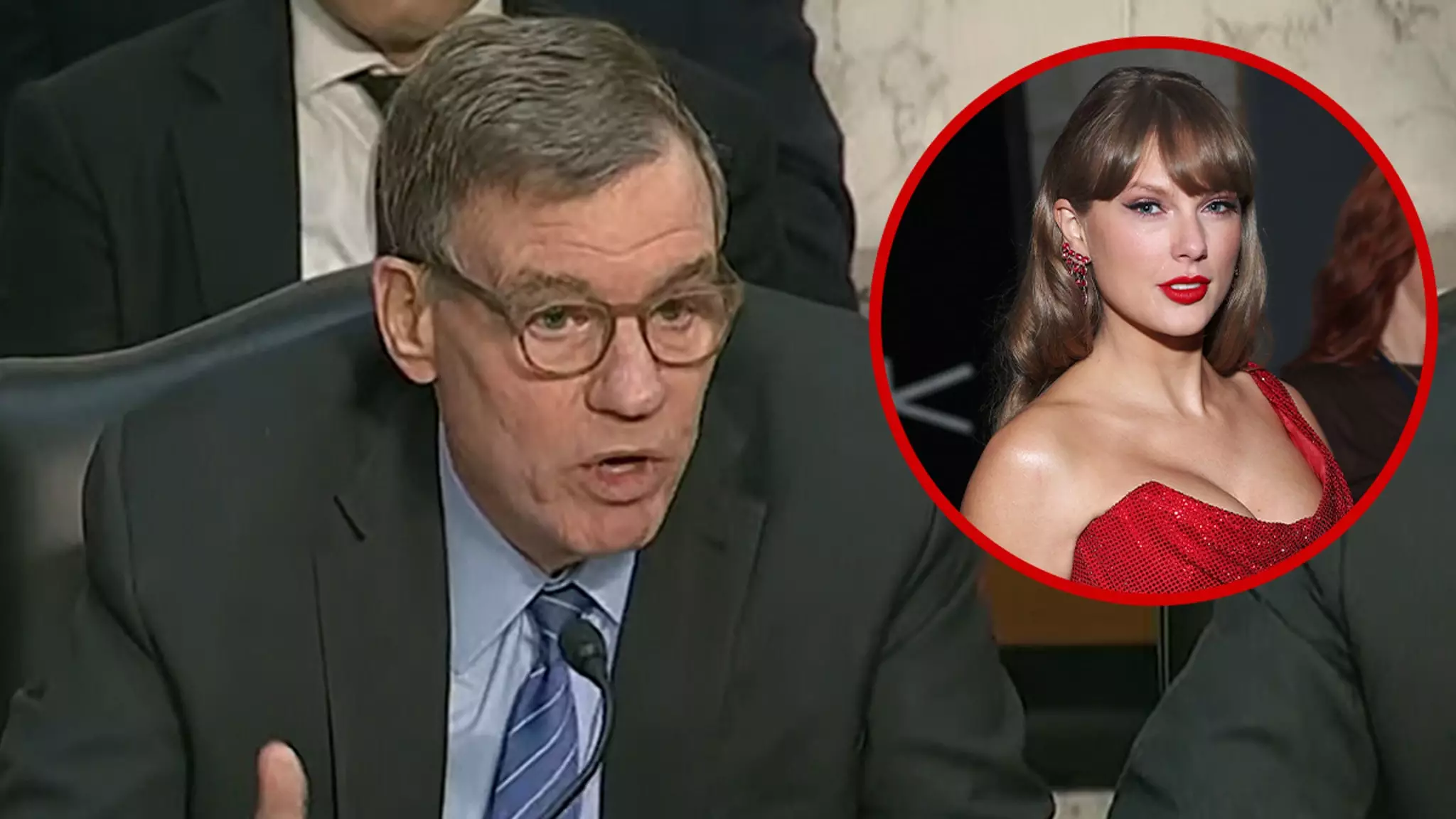In a bizarre twist of current events, pop icon Taylor Swift has resonated beyond the world of music, intertwining into the realm of national security discussions in Washington, D.C. This phenomenon underscores not just her widespread popularity, but also how intertwined modern celebrity culture is with serious political conversations. During a recent Senate intelligence hearing focused on global threats, Senator Mark Warner drew attention to a thwarted terror plot against a Taylor Swift concert in Austria, illustrating how cultural figures can serve as touchpoints in discussing larger issues of international diplomacy, intelligence sharing, and collaborative security efforts.
The mention of Swift came amidst a contentious backdrop—a Senate hearing that aimed to assess the credibility and operational capabilities of intelligence agencies following serious lapses in communication. The day before, revelations emerged regarding officials from the Department of Defense discussing sensitive information inappropriately via a commercial messaging app. This incident has raised eyebrows, drawing attention to the precarious gap between technology and security in today’s rapidly evolving digital landscape.
A Grim Reality: The Threat Against Concertgoers
As Swift’s name echoed in the hallowed halls of government, it was a stark reminder of real vulnerabilities that exist for public figures and their fans alike. Last summer, authorities in Austria detained several individuals connected to a plot targeting a Swift concert in Vienna, showcasing how celebrity presence can attract unwanted and dangerous attention. It was a harrowing moment that spotlighted the role of cooperative intelligence operations between nations—an aspect that Warner emphasized during the hearing. He articulated a critical message about the importance of alliances in thwarting such threats, underlining the incident as a case study in the necessity of shared intelligence.
Warner’s insistence on the importance of collaborative frameworks in protecting not only renowned personalities but the general public also highlights a pressing concern: as violence against public events rises globally, so does the urgency to foster solidarity among nations in counterterrorism efforts. The successful intervention in the potential disaster at Swift’s concert reaffirms the real-life implications of these types of alliances—furthermore, it proves the salience of acting proactively rather than reactively.
The Role of Cultural Icons in Political Discourse
In an increasingly polarized political landscape, Swift’s name pops up as a commercial and cultural force, transcending her genre. It seems surreal that a pop superstar can catalyze policy discussions; however, her influence illustrates how cultural icons can be inadvertently woven into the fabric of national security discourse. Celebrities hold unique positions in society that resonate with a wide audience; as a result, they give voice to broader themes of collective safety and international cooperation.
Swift’s presence on a prominent stage—as someone whose concerts gather thousands—underscores not just her success but reflects the interconnectedness of cultural phenomena and the socio-political environment. The excitement surrounding her music and the potential threats to her shows underline a fundamental question: how do we prioritize cultural safety alongside national security?
Digital Missteps: A Wake-Up Call for Intelligence Agencies
The blunders revealed in the aforementioned reports, including the inclusion of a journalist in a classified discussion, starkly illustrate the challenges faced by institutions tasked with protecting national security. Using commercial platforms to discuss sensitive information is not only reckless; it sets a dangerous precedent where crucial decisions are potentially compromised by error or oversight. It forces us to consider whether the rush to adapt to new technologies cannot come without stringent guidelines and frameworks.
While discussions of national security should embrace modernity and technological advancement, they must not trivialize the need for enhanced security protocols. The unfortunate incident serves as a sobering reminder that even competent intelligence can falter—but also presents an opportunity for growth and restructuring. Will this serve as a catalyst for a much-needed reevaluation of digital communication policies and structures within intelligence communities?
In the end, as Swift inadvertently plays a part in a conversation about security, the broader implications on how culture influences politics cannot be overlooked. We must navigate this intersection with care—recognizing that the safety of our public figures and citizens is contingent upon our ability to adapt and innovate within the complex web of international security relations.

